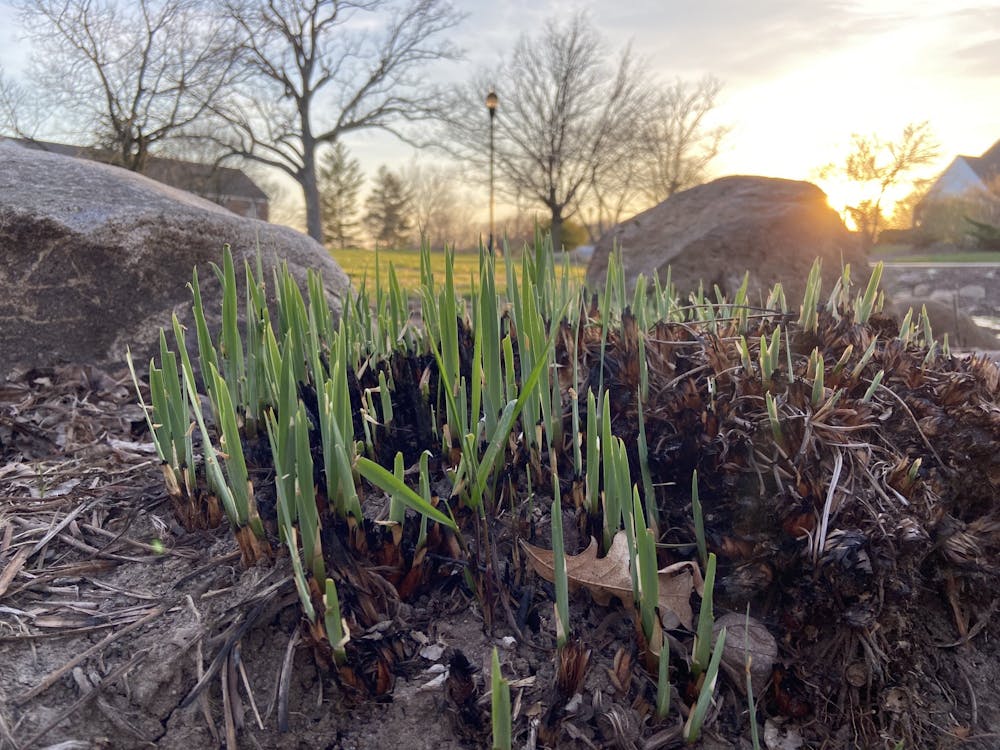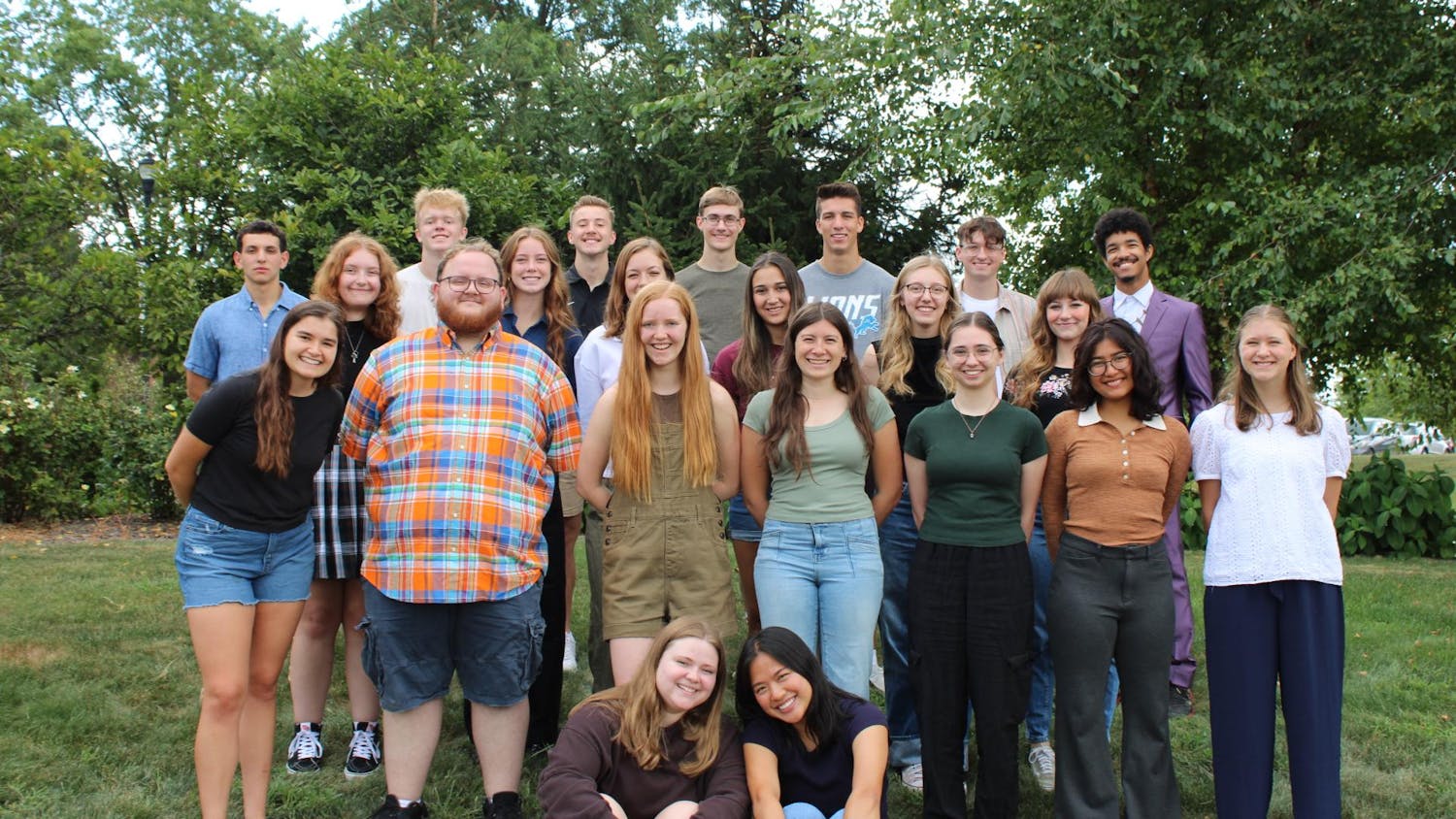Observing Earth day is the perfect time to remember God’s creation and reflect on his heart towards nature.. Genesis 1:31 says “God saw all that he had made– and it was very good!”
Christians have the unique opportunity to worship God because we recognize that all of creation is His– however, it seems like we often forget that believers also have the responsibility to steward the planet and all the natural resources that come with it.
Michael Guebert, Professor of Environmental Science says that often students are thinking “Why bother? Why care?”
“What matters is your response to Christ’s call,” Geubert said. “There is an obedience aspect to it.”
Stewarding creation is an original command that echoes back to the creation accounts in Genesis chapters 1 and 2. Besides pure obedience to Scripture, creation care is also a way to love our neighbors well. When we fail to take care of creation, our poor choices can have negative or even deadly consequences for people living all around the world. Rising sea levels, flooding and deforestation often follow when we don’t consider the full force of our actions.
As the body of Christ, we should all be working together to fulfill God’s commandment to steward His creation. Taylor University, as an institution dedicated to following God’s command, should be leading the way in creation care.
But for some reason, it seems that the command to steward creation is viewed as a hobby for the more ‘outdoorsy’ Christians and not a responsibility for all believers.
Professor of Sustainable Development Phil Grabowski explains why this view of the environment has taken such an unfortunate turn.
“The problem is the issue has become so politically polarized, which it doesn’t have to be,” Grabowski said.
To try and reconcile this issue, Grabowski has his sustainability classes take an ecological footprint assessment. Through a questionnaire, students learn how many planet earths would have to exist if everyone in the world lived a similar lifestyle. Many times students are shocked by the results. Grabowski then challenges them to change their lifestyle for a week in a way that would reduce their carbon footprint.
Most of the time, students decide to eat less red meat, swap plastic cutlery for a reusable set, or take shorter showers. While these practices are a great first start and easy steps to take, they focus more on the impact of an individual. Large-scale change can only occur when there is collective effort.
This sort of effort requires re-examining what we have normalized as culture and tradition. One normalization might just be the amount of ‘stuff’ we acquire while living on campus.
For example, students might accumulate dozens of clothing items while they attend college. Wing gear, costumes for Silent Night and Airband, and game day t-shirts are added to one’s closet. When we buy all this clothing (or get it for ‘free’) we rarely consider where it was sourced– the labor that is put into a piece and the amount of water and electricity used to mass produce an item.
The sentiment behind these traditions is healthy school spirit but it can be a little discouraging to consider how much we depend on consumption to build community.
Senior Bianca Liberti is passionate about sustainability and mindful consumption. She often has to remind herself to pause and consider what a new item will add to her life.
“I think about the people who made them and then I think about the contentment of my heart,” Liberti said.
Another overlooked but well loved tradition is a late night drive to get fast food. It seems like everyone enjoys a 1 am drive to Taco Bell and the intention behind these trips are always just good-hearted fun. But we get in the car and go buy some cheap snacks without thinking about the carbon emissions from our drive or where the food we bought was sourced from.
Carbon emissions warm up the planet, causing disasters like long heat waves that lead to famine and drought in some parts of the world.
In light of these heavy repercussions, change seems to be the only alternative. Yet considering changing Taylor traditions to be more eco-friendly will take a lot of creativity and unity as a collective group. On the editorial board, we believe the extra effort is worth it in pursuit of what God has called us to do.
It is easy to get overwhelmed when wrestling with a large-scale view of consumption and creation care. Liberti believes it starts with a desire to be more eco-friendly and practicing that with integrity in one’s own life. Those choices might begin to influence those around you, starting a ripple effect.
“Nobody can be perfect! But the danger is thinking that what I do as an individual doesn’t matter,” Liberti said.
Geubert and Grabowski agree, noting that students can be at the forefront of larger changes on campus. Administration often begins to care about what the students deem as important. Still, the effort won’t be easy.
“We have to begin to live in ways that are restraining our selfishness and working against our convenience,” Grabowski said.





